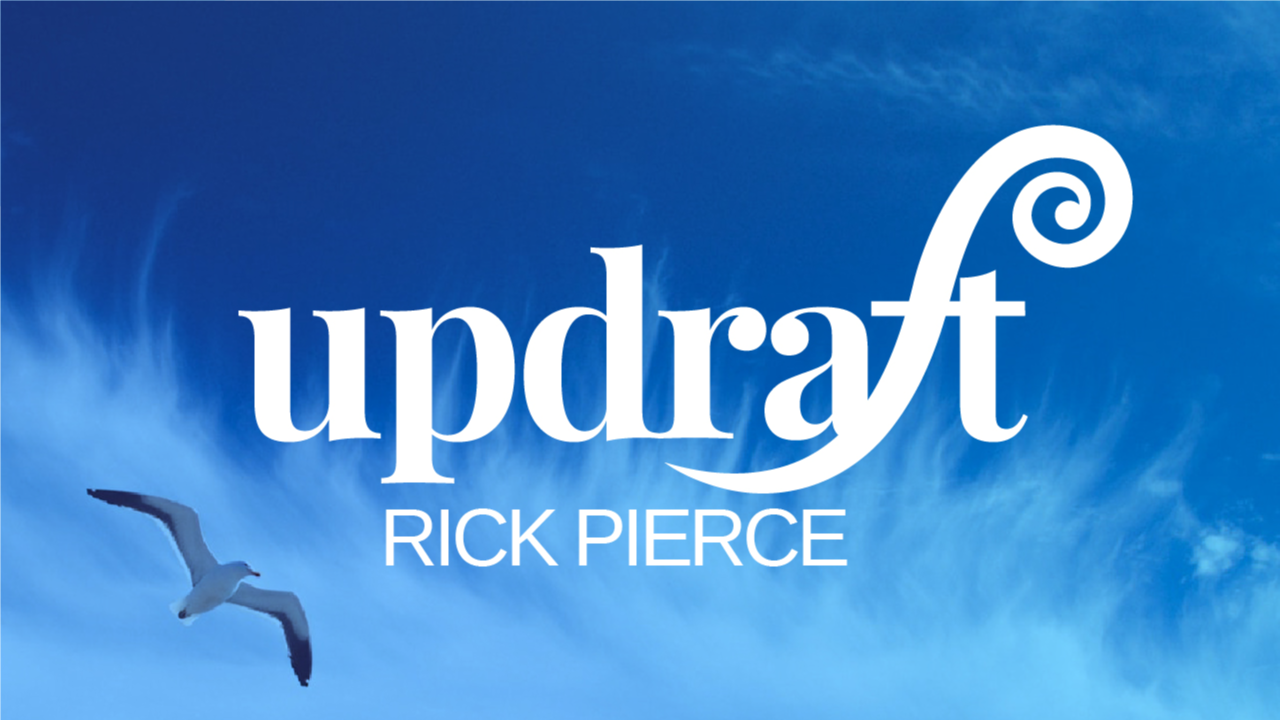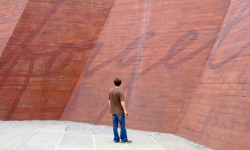
An ‘updraft’ in meteorology characterises a storm’s early development as warm air rises, eventually bringing the rains that offer sustenance and life. Rick’s hope for this monthly updraft column is for it to be a catalyst for change, ultimately contributing to the transformation of our faith communities. This regular column first appears in the Northern Baptist Association monthly newsletter, ‘Northern Lights’.
In his book, ‘Above the Line,’[i] Michael Henderson recounts the following story, as told to him by his Anthropology Professor: ‘at the end of every work day, Soviet Union factory workers would be stopped at the gates and searched to ensure they were not stealing any of Mother Russia’s resources or tools. One particular worker, who had formed the daily habit of pushing a wheelbarrow home, would watch patiently as the armed guards searched through the wheelbarrow, burrowing through the work coat, thick wool vest and food basket it contained. Finding no stolen items, the guards would wave the worker on his way. After several years the worker suddenly stopped turning up to work. It was later discovered, much to the delighted amusement and admiration of many of his comrades, that he had been stealing wheelbarrows from the factory. He had then sold them to local farmers and in this way been able to save up enough money to bribe the appropriate officials and escape from the Soviet Union.
Henderson goes on to make the point that we often see things without grasping their full significance. It is the same with culture (understood as the ‘way’ we do things and the ‘why’ we do things the way we do). Culture impacts us in ways we are often unaware of, so when we talk about change (as we have been doing in previous editions of Updraft), we must also talk about culture. As leadership guru Peter Drucker stated, ‘Culture eats strategy for breakfast.’ If you want to change the strategy, you have to change the deeper aspects of culture. Failure to do so will result in culture sabotaging any change process.
The very nature of ‘culture’ means it’s an outsider that often identifies the deeper influences of culture concerning traditions, patterns of behaviour and ‘why’ things are done the way they are. Those within the culture rely on outsiders to see any necessary change and help them become aware of it. We see this explicitly in Exodus 18. Jethro, Moses’ father-in-law, witnesses the daily process of everyone lining up to speak to Moses to have him ‘judge’ their situations. ‘Why?’ Moses is the voice of God, informing the people of God’s decrees and laws. Jethro is not impressed. ‘What you are doing is not good,’ he tells Moses. Then he sets out an alternative structure for the community that created relational spaces for thousands, hundreds, fifties, and tens.
Moses listened to his father-in-law and did everything he said (Exodus 18:24 - a wise response indeed!). This wasn’t simply a structural change. This was a culture change. Embracing Jethro’s relational network gave rise to a more connected, empowered, life-giving community in relationship with one another, rather than all directly connecting to Moses as their leader. It freed Moses up to lead the people rather than being bogged down in his role of ‘judge.’ More precious time was available for important things, as the people relationally connected, rather than queued! Such a change created relational spaces where people could be known, valued, and loved. The community’s whole dynamics and relational culture were overhauled in a way that their future could look very different from their past.
That gives rise to a few questions for us to consider in our context of being church today:
What do our social, relational structures need to look like to help fuel a connected, empowered, and life-giving church community?
How do we change our social, relational structures so our lives together create a context in which we’re becoming the gospel? (Our life together is a living testimony of God’s grace, truth, love, and life).
What do our social, relational structures need to look like to free up time and resources and empower people to engage in life together, each utilising their God-given gifts with high levels of participation and ownership?
How do we structure our social, relational way of being to connect with our local community and bring gospel renewal to people and places in our local neighbourhoods?
In creating a more flexible, organic, relational community, how do we continue to communicate vision and values that bring alignment of direction and a sense of belonging to a very diverse, relational community growing in the likeness of Christ?
Here’s the challenge as we consider our response. Are we prepared to stand up and acknowledge, ‘what [we] are doing is not good’. Or will we continue to push the wheelbarrows of a culture that has served the church well in the past but now inhibits us from becoming what we need to be in our changed context? COVID has disrupted our rhythms and practices and those who’ve left our church communities over the past three years highlight the loose relational connection many were experiencing. It’s time for us to look at our culture and make a change.
When we think about the ‘why of change’ and the ‘why we do things the way we do,’ Stanley Grenz provides an inspiring vision of the church’s role now, when he states: ‘at its [the churches] heart is the goal of modelling in the present the glorious human fellowship that will come at the consummation of history.’[ii] That modelling of ‘glorious human fellowship’ is captured in our hopes of being a collective of Baptist faith communities bringing gospel renewal to people and places in our local neighbourhoods. To do that, we need to be living differently, and we need to be changing our culture. May we have eyes to see, ears to hear, and courage to follow the new thing God is doing. Rather than continuing to push the wheelbarrows of our existing culture, let’s choose to change it!
[i] Michael Henderson, Above the Line: How to Create a Company Culture that Engages Employees, Delights Customers and Delivers Results (Milton, Qld: John Wiley & Sons Limited, 2014), 3-4.
[ii] Stanley J Grenz, Theology for the Community of God (Grand Rapids: Eerdmans and Vancouver: Regent College Publishing, 2000), 479.


